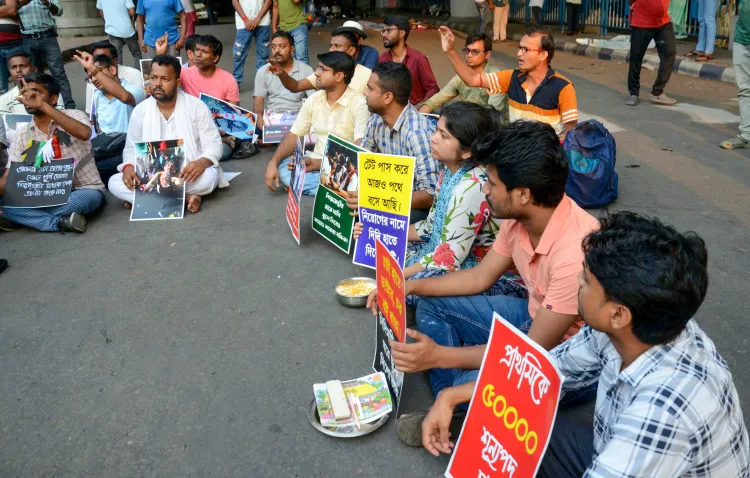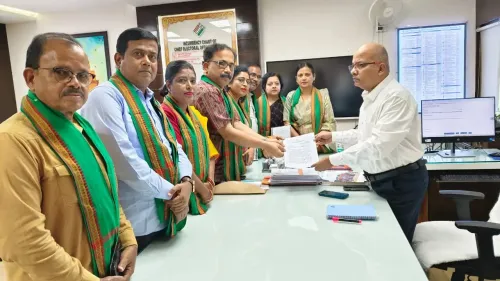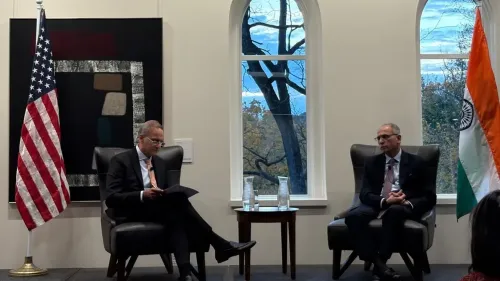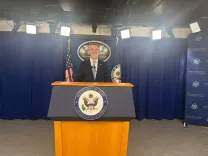Why is the Calcutta HC Directing the Bengal Government on Teachers' Protests?

Synopsis
Key Takeaways
- Calcutta High Court demands affidavit from West Bengal government.
- Teachers' protests follow job losses due to Supreme Court ruling.
- Next hearing set for Friday to evaluate the state's response.
- Police are barred from intervening during protests.
- Teachers call for transparency in hiring practices.
Kolkata, May 22 (NationPress) The Calcutta High Court has instructed the West Bengal government to submit an affidavit explaining its opposition to the protests by teachers, who were dismissed following a Supreme Court ruling last month. The protests were staged in front of Bikas Bhavan, the state Education Department headquarters located in northern Kolkata.
Justice Tirthankar Ghosh, presiding over a single-judge bench, indicated that the upcoming hearing will be influenced by the contents of the affidavit submitted by the state government.
The court has scheduled the next hearing for Friday, after which a final ruling will be delivered. Justice Ghosh also prohibited the police from taking any action against the teachers protesting during this interim period.
The primary concern of the state government regarding the demonstrations at Bikas Bhavan is the involvement of outsiders, whose actions have allegedly escalated the protests into violent confrontations. This was particularly evident on May 15, when a faction of protesters breached the department's premises by forcing open the main entrance.
According to the state's legal representative, not only the employees of the Education Department but also those from other state departments are facing challenges in fulfilling their responsibilities.
On the night of May 15, personnel from the Bidhannagar Police Commissionerate employed batons against the protesting teachers, resulting in numerous injuries to the demonstrators.
In compliance with Justice Ghosh's directive issued on Wednesday, the protesting educators, against whom the police initiated a suo motu case, reported to the Bidhannagar North Police Station on Thursday evening for questioning. After leaving the police station, the teachers asserted their determination to continue protesting.
The key demand of the protesting teachers is for the West Bengal government and the West Bengal School Service Commission to promptly release lists distinguishing the 'untainted' candidates from those deemed 'tainted,' who allegedly secured jobs through corrupt means.
On April 3, the Supreme Court's division bench, led by then Chief Justice of India Sanjiv Khanna and Justice Sanjay Kumar, upheld a prior ruling by a division bench of the Calcutta High Court, which annulled 25,753 school job appointments.
The apex court endorsed the Calcutta High Court's conclusion that the entire panel of 25,753 candidates must be annulled due to the state government's and commission's failure to differentiate between 'untainted' and 'tainted' candidates.
Both the state government and the West Bengal School Service Commission (WBSSC) have already submitted review petitions to the Supreme Court regarding this matter.









